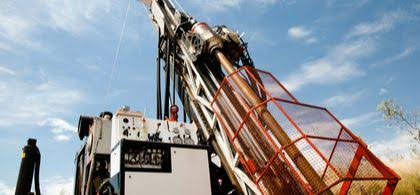
Tertiary Minerals, collaborating with exploration partner KoBold Metals, has marked a major milestone at the Konkola West copper project in Zambia, completing the deepest drill hole ever recorded in the Zambian Copperbelt.
Drilling of hole KWDD001 reached a remarkable depth of 2,711.1 m, surpassing all previous exploration records in the region. Despite falling short of the primary ore-shale horizon, the hole yielded crucial geological insights, including two zones of low-grade copper sulphide mineralisation featuring trace bornite and chalcopyrite over intervals of 9.9 m and 2.19 m, respectively. Geophysical surveys including magnetic, induced polarization, resistivity, and gamma-ray have also been completed, providing a wealth of data to refine KoBold’s proprietary basin modelling.
In response to these promising findings, drilling has now commenced on the second hole, KWDD002, targeting an estimated depth of around 2,000 m. The planned drilling orientation and location reflect adjustments based on the geological architecture revealed in KWDD001.
Richard Belcher, Managing Director of Tertiary Minerals, remarked that the company remains “extremely positive” about future outcomes, commending the comprehensive, data-driven approach employed by KoBold. KoBold Metals Africa’s CEO echoed the sentiment, emphasizing that the project is “pushing the boundaries of exploration in Zambia.”
Under the terms of the earn-in contract, KoBold committed to two drill holes totalling a minimum of 2,000 m a target now comfortably exceeded, thanks to an agreed four-month extension. The recent drilling has significantly enhanced the regional geological model and will inform more targeted exploration going forward.
The Konkola West project lies adjacent to the world-class Musoshi, Lubambe, and Konkola mines together accounting for a pre-mining endowment of more than 775 Mt at grades of 2–3% copper—underscoring the area’s potential to host substantial mineralisation.
As Zambia seeks to boost copper output having achieved roughly 820,670 t in 2024 the results from Konkola West contribute to the country’s broader vision to scale production to 3 million tonnes annually within a decade.

